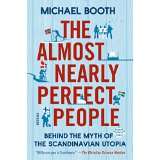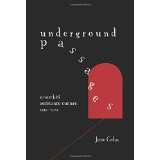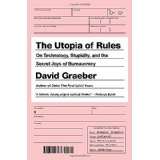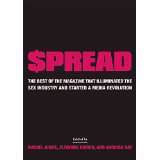New Books! A Libertarian Syllabus for Early 2015
12 new books of potential interest to libertarians


Yesterday Ilya Somin at "The Volokh Conspiracy" rounded up "some important new books on libertarianism," including The Libertarian Mind, from Cato Institute President David Boaz, and Markets Without Limits, in which Jason Brennan and Peter Jaworski argue that if something is morally defensible to do for free, it should be legal to do for money. But Somin's list was short, and we've still got quite a few weeks of winter weather left. Sure, some people might recommend putting in a little extra gym time in preparation for spring, or getting an early start on spring cleaning. Those people are idiots. We all know you're going to ride out this season binge-watching the new season of House of Cards and drowning your cold-weather blues in booze. But if you can squeeze some reading into your busy schedule, here are 10 more recently published or imminently upcoming books of potential interest to libertarians. [All descriptions are from publishers' blurbs on Amazon.com.]

The Almost Nearly Perfect People: Behind the Myth of the Scandinavian Utopia
Michael Booth - January 2015
Journalist Michael Booth has lived among the Scandinavians for more than ten years, and he has grown increasingly frustrated with the rose-tinted view of this part of the world offered up by the Western media. In this timely book he leaves his adopted home of Denmark and embarks on a journey through all five of the Nordic countries to discover who these curious tribes are, the secrets of their success, and, most intriguing of all, what they think of one another. Why are the Danes so happy, despite having the highest taxes? Do the Finns really have the best education system? Are the Icelanders as feral as they sometimes appear? How are the Norwegians spending their fantastic oil wealth? And why do all of them hate the Swedes? InThe Almost Nearly Perfect People Michael Booth explains who the Scandinavians are, how they differ and why, and what their quirks and foibles are, and he explores why these societies have become so successful and models for the world. Along the way a more nuanced, often darker picture emerges of a region plagued by taboos, characterized by suffocating parochialism, and populated by extremists of various shades.

Intellectual Privacy: Rethinking Civil Liberties in the Digital Age
Neil Richards - February 2015
Most people believe that the right to privacy is inherently at odds with the right to free speech. Courts all over the world have struggled with how to reconcile the problems of media gossip with our commitment to free and open public debate for over a century. The rise of the Internet has made this problem more urgent. We live in an age of corporate and government surveillance of our lives. And our free speech culture has created an anything-goes environment on the web, where offensive and hurtful speech about others is rife. … In Intellectual Privacy, Neil Richards offers a different solution, one that ensures that our ideas and values keep pace with our technologies. Because of the importance of free speech to free and open societies, he argues that when privacy and free speech truly conflict, free speech should almost always win.
More fundamentally, Richards shows how privacy and free speech are often essential to each other. He explains the importance of "intellectual privacy," protection from surveillance or interference when we are engaged in the processes of generating ideas— thinking, reading, and speaking with confidantes before our ideas are ready for public consumption. In our digital age, in which we increasingly communicate, read, and think with the help of technologies that track us, increased protection for intellectual privacy has become an imperative. What we must do, then, is to worry less about barring tabloid gossip, and worry much more about corporate and government surveillance into the minds, conversations, reading habits, and political beliefs of ordinary people.

Free Market Environmentalism for the Next Generation
Terry L. Anderson and Donald R. Leal - Feburary 2015
In 1991, Terry Anderson and Donald Leal set forth a new path for environmentalism—one which stressed how property rights and markets could help overcome policy and legal shortcomings, providing real-world solutions for impending environmental concerns. In this follow-up volume, the authors are joined with emerging environmentalists to outline further means for free markets to promote environmental solutions for problems ranging from alternative energy sources, rehabilitating fisheries, improving clean water efforts, and setting forth new horizons for "enviropreneurs." Anderson and Leal expand upon their novel approaches to environmentalism, providing brand-new content for a new generation of thought - and most importantly - for a new period of environmental action

The Eternal Criminal Record
James B. Jacobs - February 2015
For over sixty million Americans, possessing a criminal record overshadows everything else about their public identity. A rap sheet, or even a court appearance or background report that reveals a run-in with the law, can have fateful consequences for a person's interactions with just about everyone else. The Eternal Criminal Record makes transparent a pervasive system of police databases and identity screening that has become a routine feature of American life. The United States is unique in making criminal information easy to obtain by employers, landlords, neighbors, even cyberstalkers. Its nationally integrated rap-sheet system is second to none as an effective law enforcement tool, but it has also facilitated the transfer of ever more sensitive information into the public domain. While there are good reasons for a person's criminal past to be public knowledge, records of arrests that fail to result in convictions are of questionable benefit. Simply by placing someone under arrest, a police officer has the power to tag a person with a legal history that effectively incriminates him or her for life.
In James Jacobs's view, law-abiding citizens have a right to know when individuals in their community or workplace represent a potential threat. But convicted persons have rights, too. Jacobs closely examines the problems created by erroneous record keeping, critiques the way the records of individuals who go years without a new conviction are expunged, and proposes strategies for eliminating discrimination based on criminal history, such as certifying the records of those who have demonstrated their rehabilitation.

Underground Passages: Anarchist Resistance Culture 1848-2011
Jesse Cohn - February 2015
What anarchists demanded from art was what they demanded from all aspects of their political lives: that it should, as much as possible, embody the principle in the practice, the end in the means. While prefiguring a post-revolutionary world, anarchists simultaneously created a richly textured "resistance culture" to sustain their ideals and identities amid everyday lives defined by capital and the state, allowing an escape from domination even while enmeshed in it. Underground Passages investigates and interrogates these creations across the history of the movement. Whether discussing famous artists like John Cage or Diane DiPrima or unknown and anonymous anarchist writers, Cohn shows how aesthetic shifts both reflected and influenced and political and economic ones.

Libertarian Philosophy in the Real World: The Politics of Natural Rights
Mark D. Friedman - February 2015
Robert Nozick's Anarchy, State, and Utopia is widely recognized as one of the most influential works of modern political philosophy. Libertarian Philosophy in the Real World not only provides a concise and accessible introduction to Nozick's ideal rights-based, minimal libertarian state, but for the first time applies this moral framework to America's liberal democracy. Mark D. Friedman clearly presents Nozick's arguments for natural rights, showing that his theory undermines the very idea of social justice, and enables libertarians to rebut the most common objections to their doctrine. The book delivers a withering moral critique of the American welfare state, with chapters devoted to property rights, freedom of expression and association, paternalism, and the state's intervention in discrete aspects of modern life such as public education and healthcare. Friedman argues that reducing the liberal democratic state to its core functions would not produce the sort of moral catastrophe that might make us reconsider our commitment to individual rights. So, what is to be done? Friedman concludes with effective argumentative strategies for moving American politics in a more libertarian direction.

The Utopia of Rules: On Technology, Stupidity, and the Secret Joys of Bureaucracy
David Graeber - February 2015
Where does the desire for endless rules, regulations, and bureaucracy come from? How did we come to spend so much of our time filling out forms? And just how much are our lives being ruined by all this nonstop documentation? To answer these questions, anthropologist David Graeber … traces the peculiar and unexpected ways we relate to bureaucracy today and reveals how it shapes our lives in ways we may not even notice. Is the inane, annoying paperwork we confront every day really a cipher for state violence? And is the capitalist promise of salvation-through-technology just a tool for the powerful to exert more control? Graeber provides a forceful, radical answer to these questions, though he also suggests that there may be something perversely appealing—even romantic—about bureaucracy. … An essential book for our times, The Utopia of Rules is sure to start a million conversations about the institutions that rule our lives—and the better, freer world we should, perhaps, begin to imagine for ourselves.

$pread: The Best of the Magazine that Illuminated the Sex Industry and Started a Media Revolution
Editors: Rachel Aimee, Eliyanna Kaiser, and Audacia Ray - March 2015
$pread, an Utne Award–winning magazine by and for sex workers, was independently published from 2005 to 2011. This collection features enduring essays about sex work around the world, first-person stories that range from deeply traumatic to totally hilarious, analysis of media and culture, and fantastic illustrations and photos produced just for the magazine. The book also features the previously untold story of $pread and how it has built a wider audience in its posthumous years. What started as a community tool and trade magazine for the sex industry quickly emerged as the essential guide for people curious about sex work, for independent magazine enthusiasts, and for labor and civil rights activists.

Foragers, Farmers, and Fossil Fuels: How Human Values Evolve
Ian Morris (author) and Stephen Macedo (editor) – March 22, 2015
Most people in the world today think democracy and gender equality are good, and that violence and wealth inequality are bad. But most people who lived during the 10,000 years before the nineteenth century thought just the opposite. Drawing on archaeology, anthropology, biology, and history, Ian Morris, author of the best-selling Why the West Rules—for Now, explains why. … Fundamental long-term changes in values, Morris argues, are driven by the most basic force of all: energy. Humans have found three main ways to get the energy they need—from foraging, farming, and fossil fuels. Each energy source sets strict limits on what kinds of societies can succeed, and each kind of society rewards specific values. In tiny forager bands, people who value equality but are ready to settle problems violently do better than those who aren't; in large farming societies, people who value hierarchy and are less willing to use violence do best; and in huge fossil-fuel societies, the pendulum has swung back toward equality but even further away from violence.
But if our fossil-fuel world favors democratic, open societies, the ongoing revolution in energy capture means that our most cherished values are very likely to turn out—at some point fairly soon—not to be useful any more. Originating as the Tanner Lectures delivered at Princeton University, the book includes challenging responses by novelist Margaret Atwood, philosopher Christine Korsgaard, classicist Richard Seaford, and historian of China Jonathan Spence.

So You've Been Publicly Shamed
Jon Ronson - March 2015
For the past three years, Jon Ronson has been immersing himself in the world of modern-day public shaming—meeting famous shamees, shamers, and bystanders who have been impacted. This is the perfect time for a modern-day Scarlet Letter—a radically empathetic book about public shaming, and about shaming as a form of social control. It has become such a big part of our lives it has begun to feel weird and empty when there isn't anyone to be furious about. Whole careers are being ruined by one mistake. A transgression is revealed. Our collective outrage at it has the force of a hurricane. Then we all quickly forget about it and move on to the next one, and it doesn't cross our minds to wonder if the shamed person is okay or in ruins. What's it doing to them? What's it doing to us?
Editor's Note: As of February 29, 2024, commenting privileges on reason.com posts are limited to Reason Plus subscribers. Past commenters are grandfathered in for a temporary period. Subscribe here to preserve your ability to comment. Your Reason Plus subscription also gives you an ad-free version of reason.com, along with full access to the digital edition and archives of Reason magazine. We request that comments be civil and on-topic. We do not moderate or assume any responsibility for comments, which are owned by the readers who post them. Comments do not represent the views of reason.com or Reason Foundation. We reserve the right to delete any comment and ban commenters for any reason at any time. Comments may only be edited within 5 minutes of posting. Report abuses.
Please to post comments


I'll wait for the movies.
I don't see the novelization of Armageddon on the list once again this year. What will it take?
Uh...someone actually novelizing Armageddon?
Here ya go.
And begging your pardon, sir, but it's a big-ass novelization.
But you can't actually buy it, therefore it doesn't actually exist. That's FoE's Law, by the way.
I always hoped that FoE's Law would be, "If you can't tell when someone's being sarcastic in print then maybe you're a fucking idiot, idiot."
Why can't that be Fist's Law? You contain multitudes, you should have multiple laws, right? Idiot.
ENB definitely knows her audience.
No she doesn't. Our constant drinking has absolutely nothing to do with the weather.
Hey, I don't just drink, I smoke a lot of weed and take lots of pills!
Yeah, my first thought on reading that was "get out of my head!"
http://acecomments.mu.nu/?post=355240
Ace has been spouting some libertarian ideas lately that warm my cold, black heart.
"The internet is an "information service" over which the FCC has no power. So the FCC has decided, on its own authority, to declare the Internet a "telecomunications service," over which it does have authority.
Note that Congress did not make this important change in definition. An agency charged with executing the law as Congress passes it has decided that it itself would change the law.
We are no longer a democracy, and as there is no longer even a fictive consent of the governed in our laws, there no longer exists any philosophical basis for obeying the government. Now obedience is simply required by practical considerations: because they will kill or imprison you if you don't obey."
Hey, finally some people are realizing the truth about government and "laws"! They're finally realizing that those things are made up bullshit that the powerful use to trick the proles into believing that power is something other than naked force, and that it's legitimate.
FCC might be justified by statute in this new understanding. If you look at the Wikipedia entry on Telecommunications service, it would seem to depend on what's meant by "transmission". It doesn't say you have to own the wire to be transmitting something over it, so I think FCC is more likely correct than not. Unless there's some case law on this to the contrary, I think they win in court. Unfortunately in most circumstances you can't estop a change in an interpretive regulation, which gives a backdoor means of changing substantive regs.
This is a case similar to FDA's attempt to classify tobacco products as medical devices in the 1990s. They lost in Sup. Ct. 5-4, mostly because it seemed that Congress, during many amendments of the FFDCA, had legislated regarding cigarets in ways that implicitly contradicted regulation of them as medical products. Has Congress undertaken to legislate regarding ISPs?
Ace will never go libertarian--Ace liked Giuliani, for gawd's sake.
He hates Ron Paul, and will slag on Rand at every opportunity.
The book on Scandinavia looks interesting. One of my pet peeves is the reflex of progressives to believe it's a magical land where democratic socialism works, and all the US has to do is copy it. Never mind that tiny cultures can do things that giant diverse ones cannot. Never mind that those countries often don't fit their visions: some of them have no minimum wage laws, or use education vouchers.
And did you know that Sweden is now one of the most rapey places on Earth? That's what a commitment to multiculturalism and Third World immigration can do for you. I'm old enough to remember when Swedish pornography was held up as an argument for fewer laws against porn in the U.S. It meant there were very few rapes in Sweden, you see. Well, not anymore.
I'm old enough to remember when Swedish pornography was held up as an argument for fewer laws against porn in the U.S.
"Bork me! Bork me harder!"
'Racist' bird names banned by Sweden.
Color me suspicious about that book. Finns tend to get mad when you lump them in with Scandanavians. Their language is not related to Swedish or Norwegian and they are ethnically different.
On the other hand they do all hate Swedes. That is sure true. The Norwegians I grew up with were very easy to get along with (as long as you didn't diss lutefisk), but boy they disliked Swedes.
My grandmother was mostly Finnish, except for one Swede in her known lineage, who was considered the black sheep.
I expect the author covers differences between cultures.
Fun fact: Finnish is one of the rare European languages that is not Indo-European. Basque is another.
Minnesota is by far the worst of the Nordic countries. Did you know that in some Minnesotan locales they have Sharia law?!? Oh, and that Hulk Hogan was their governor?!? Uff da.
Yeah, 40-50 yrs. ago Sweden & Denmark were held up as exemplars of progress in breaking down not only inhibitions on sexuality, but also rigidity of sex roles. To a great extent that was liberating, but that kind of "liberation" was also creepy in the ways Szasz wrote about in Sex By Prescription, which wasn't about those countries specifically, but concerned sex viewed as a therapeutic tool to be professionally administered.
Progressives always doubt libertarian, hands-off means of increasing people's choices in life, so they undertake to put their weight on the scale in the opposite direction from its current balance. So today we have children who are supposedly of the wrong sex, rather than questioning whether the feeling they have that way is just a reflection of societal stereotyping. So what is it, they're embracing the stereotype rather than trying to dissolve it?
I get paid over $87 per hour working from home with 2 kids at home. I never thought I'd be able to do it but my best friend earns over 10k a month doing this and she convinced me to try. The potential with this is endless. Heres what I've been doing,,,,,,
http://www.wixjob.com
Asher's Dark Intelligence was a solid entry in the polity universe.
I haven't started it yet, I need to finish Peter Hamilton's Night's Dawn Trilogy first. I'm on the last book but fuck they are long.
I don't know that trilogy but will check it out. Stross has another Laundry novel coming out soon too. Rhesus Chart had such a traumatic finale. My brain craves more.
Stross has another Laundry novel in the works? Really? After Rhesus Chart just came out?
I reread the entire Laundry series (in preparation for Rhesus Chart) while flying about Europe this past summer, but I was loaded much of the time, so I need to read Rhesus Chart again.
Hamilton is a good author; he's not Asher/Banks/Reynolds/Stross level, but he's close. The Mindstar Trilogy is quite good.
You know who else thought Scandinavians were almost nearly perfect.
Who would read any of this drivel on purpose?
Ooh, good to know about the environmentalism book. I've been meaning to read Anderson and Leal's first book for a while now, so maybe I'll pick this up instead.
And I recently learned that Liberty Fund is putting out another collection of essays from Anthony de Jasay. Social Justice and the Indian Rope Trick. Jasay's always worth reading, y'all!
Or not, it looks like it came out last October. Still sorta new!
Start making cash right now... Get more time with your family by doing jobs that only require for you to have a computer and an internet access and you can have that at your home. Start bringing up to $8012 a month. I've started this job and I've never been happier and now I am sharing it with you, so you can try it too. You can check it out here...
http://www.work-mill.com
Don't forget Libertarian Anarchy by Gerard Casey. That should have been on the list.
Ilya Somin is the worst sort of faux-libertarian quisling. I read him on Volokh. He's a staunch open borders advocate, but I also note that, repeatedly, on other issues, he lets the veil slip and shares his "sympathies" (to use his term) with various initiatives to chill free speech or "protect" citizens from their own ignorance.
He's a socialist in sheep's clothing, using libertarian open borders advocacy to destroy the traditional U.S. system, which is the closest thing to libertarianism in practice that we have on the planet, at least in a major nation.
I wouldn't trust a thing he recommends or says.
Tribalism in the form of partisanship is hugely powerful to a lot of people. Because, pathetically, at the end of the day, they'd rather belong than be freer.
The moon?
Unfortunately, every square inch of land mass on this planet has now been claimed by a government, most of which suck monkey balls. There's no frontier to create, until we can get into space, and that is not happening any time soon.
The only thing you can do is try to live under the radar and in a grey zone of legality/illegality, and avoid encounters with agents of the state like the plague.